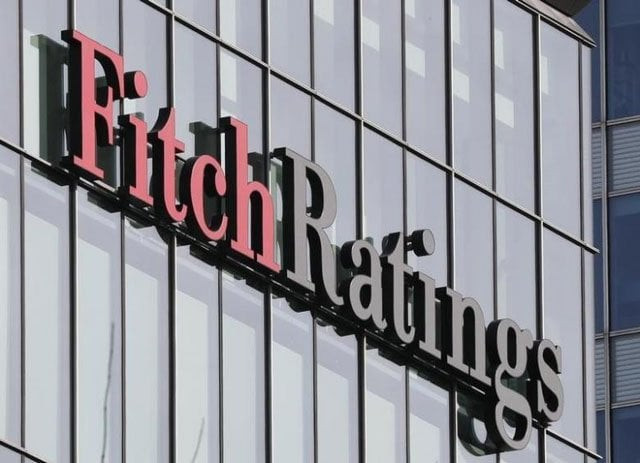Fitch upgrades Pakistan’s long-term rating
Rating rises to ‘CCC+’ on improved foreign debt repayment capacity

Fitch Ratings has upgraded Pakistan’s long-term foreign currency issuer default rating (IDR) to “CCC+” from “CCC”, indicating improvement in the country’s foreign debt repayment capacity ahead of the International Monetary Fund’s (IMF) executive board meeting for approval of a $7 billion Extended Fund Facility (EFF).
The global ratings agency has upgraded the rating for the second time in the past 12 months. Before that, it downgraded Pakistan to “CCC-" in February 2023. In its commentary, Fitch said “the upgrade reflects greater certainty over continued availability of external funding, in the context of Pakistan’s staff-level agreement (SLA) with the IMF on a new 37-month $7 billion Extended Fund Facility.”
An external public debt of over $22 billion is maturing in fiscal year 2024-25. Of the total, $13 billion is in the form of deposits and loans that are regularly rolled over, including nearly $4 billion in liabilities of the State Bank of Pakistan (SBP). The maturing debt also includes around $4 billion provided by Chinese commercial banks and $4 billion from multilateral creditors. Pakistan’s next international bonds are maturing in September 2025.
“The government says it has identified over $24 billion in gross external financing, mostly from bilateral and multilateral sources, not including potential bond issuance or the renewal of oil facility with Saudi Arabia, but including a potential Panda bond issuance. FDI (foreign direct investment) and non-resident portfolio inflows and climate-related finance pose other upsides to the funding plan,” Fitch said. It pointed out that the SBP was rebuilding foreign exchange reserves amid inflows of new funding and limited current account deficit (CAD).
“We estimate official gross reserves, including gold, rose to over $15 billion by June 2024 (about three months of import cover), from nearly $10 billion at end-June 2023, and we expect them to rise to nearly $22 billion by the end of FY26, close to their 2021 peak.”
The SBP’s narrower measure of net liquid FX reserves (excluding gold and FX reserve deposits of banks) recovered to over $9 billion by June 2024. The SBP has reduced its forward liabilities to local banks and is approaching a balanced net foreign asset/liability position.
Strong performance on the previous $3 billion short-term nine-month IMF programme helped the country narrow its fiscal deficit and rebuild FX reserves, and further improvements are likely.
“Nevertheless, Pakistan’s large funding needs leave it vulnerable if it fails to implement challenging reforms, which could undermine programme performance and funding,” Fitch said.
It added that Pakistan and the IMF reached the SLA on July 12, 2024. Before IMF board approval, which it assumed by end-August, the government will have to obtain new funding assurances from bilateral partners, chiefly Saudi Arabia, the UAE and China, totalling about $4-5 billion over the duration of the EFF.
“We believe this will be achievable, given the strong past record of support and significant policy measures in the recent budget for the fiscal year ending June 2025.”
The government aims under the new EFF to tackle longstanding structural weaknesses in the tax system, energy sector and state-owned enterprises, alongside a commitment to exchange rate flexibility and improvements in the monetary policy framework.
It targets a three-percentage-point increase in tax revenues/GDP, from under 9% in FY24, including through higher taxes on the influential agricultural sector, which will have to be legislated at the provincial level.
Pakistan successfully completed its nine-month stand-by arrangement with the IMF in April. Over the past year, the government raised taxes, cut spending and raised electricity, gas and petrol prices.
The government also all but eliminated the gap between the inter-bank and parallel (open) market exchange rates through a crackdown on the black market and regulation of exchange houses.



















COMMENTS
Comments are moderated and generally will be posted if they are on-topic and not abusive.
For more information, please see our Comments FAQ